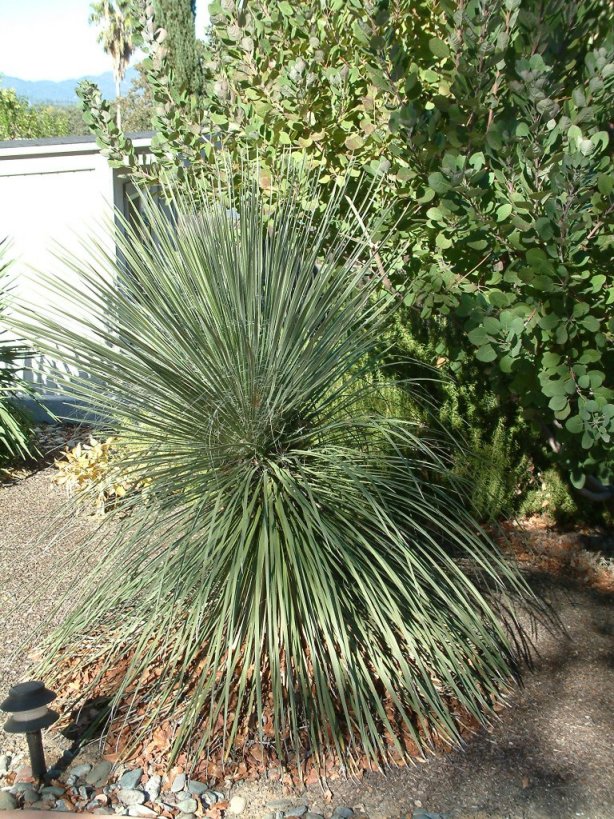| Botanical Name: Yucca elata | |
| Common Name: Soaptree Yucca |

-
Anatomy
-
Culture
-
Design
Plant Type
Shrub, Succulent, Cactus
Height Range
6-12', 12-25'
Flower Color
White
Flower Season
Spring
Leaf Color
Grey Green, Light Green
Bark Color
Tan
Fruit Color
Brown
Fruit Season
Summer, Persistent
Sun
Full
Water
Very Low
Growth Rate
Slow
Soil Type
Sandy, Clay, Loam, Unparticular
Soil Condition
Average, Poor, Well-drained, Dry
Soil pH
Neutral, Basic
Adverse Factors
Thorns/Spines
Design Styles
Mediterranean, Ranch, Spanish, Native Garden
Accenting Features
Showy Flowers, Silhouette, Specimen, Unusual Shape
Seasonal Interest
Winter, Spring
Location Uses
Background, Entry, With Rocks
Special Uses
Naturalizing
Attracts Wildlife
Hummingbirds
Information by: Stephanie Duer
Photographer: Mountain States Nursery
Photographer: Mountain States Nursery
-
Description
-
Notes
Soaptree Yucca has slender blades that grow to four feet long, developing white threads along margins as they mature. Old leaves turn yellow and bend down, forming an attractive barrier around trunk. Flowers form on stalks emerging from central portion of each branch, growing 4 to 6 feet above foliage. Flowers are white and bell-shaped, blooming in the spring. Brown seed pots form after flowering, providing another season of interest. Slow growth to 6 to 20 feet tall with a spread of 12 feet.
This yucca is native to the Chihuanhuan Desert and is hardy to 0F. Most yuccas have fibrous roots; this has taproot and makes it very difficult to transplant. Keep winter dry. Requires well drained, deep soil; do not grow in gravel. Requires no supplemental water after establishment, though periodic watering will increase growth rate. Full sun. Listed as a USDA Zone 6 plant, so local in an area sheltered from winter winds.